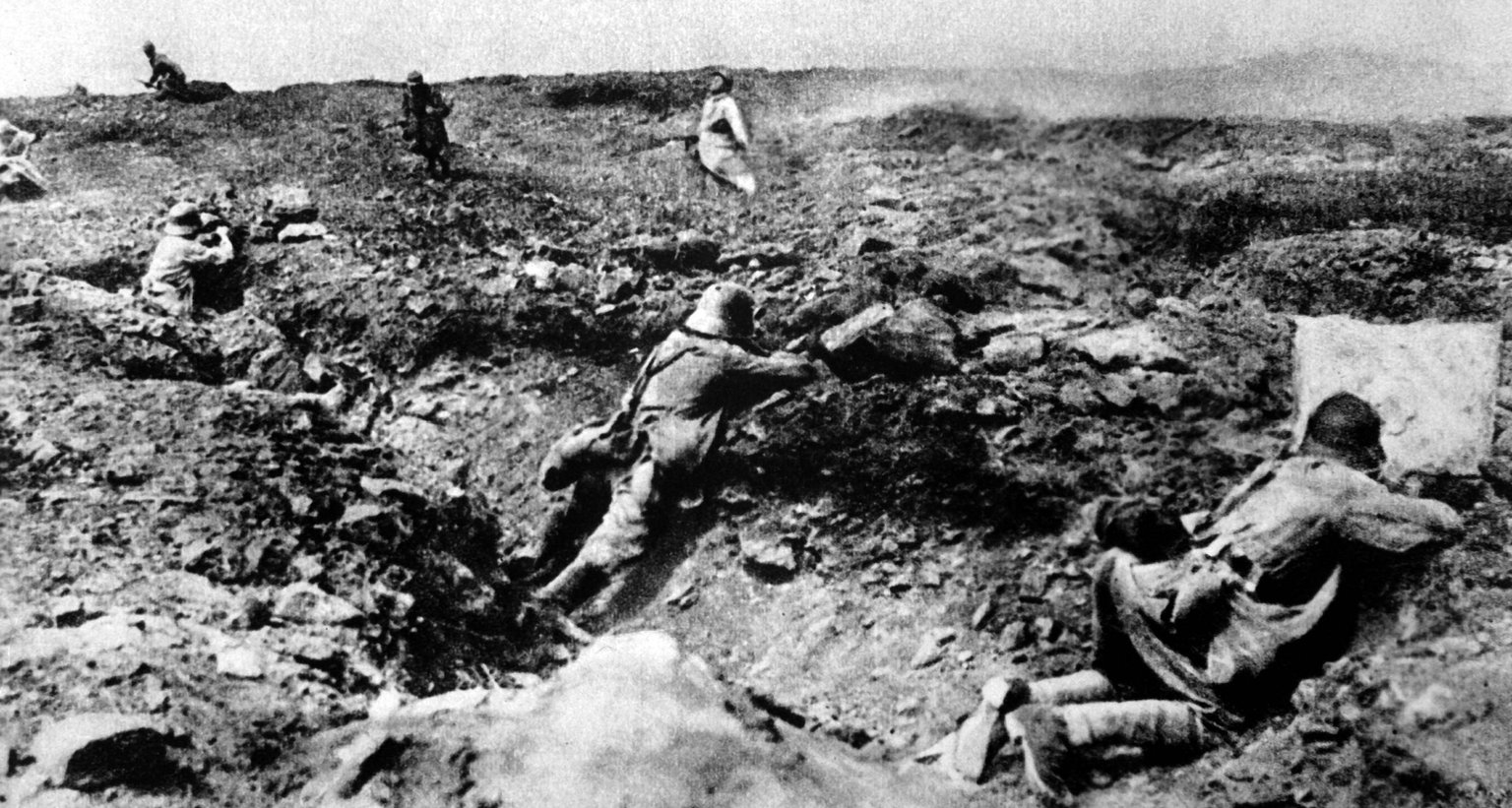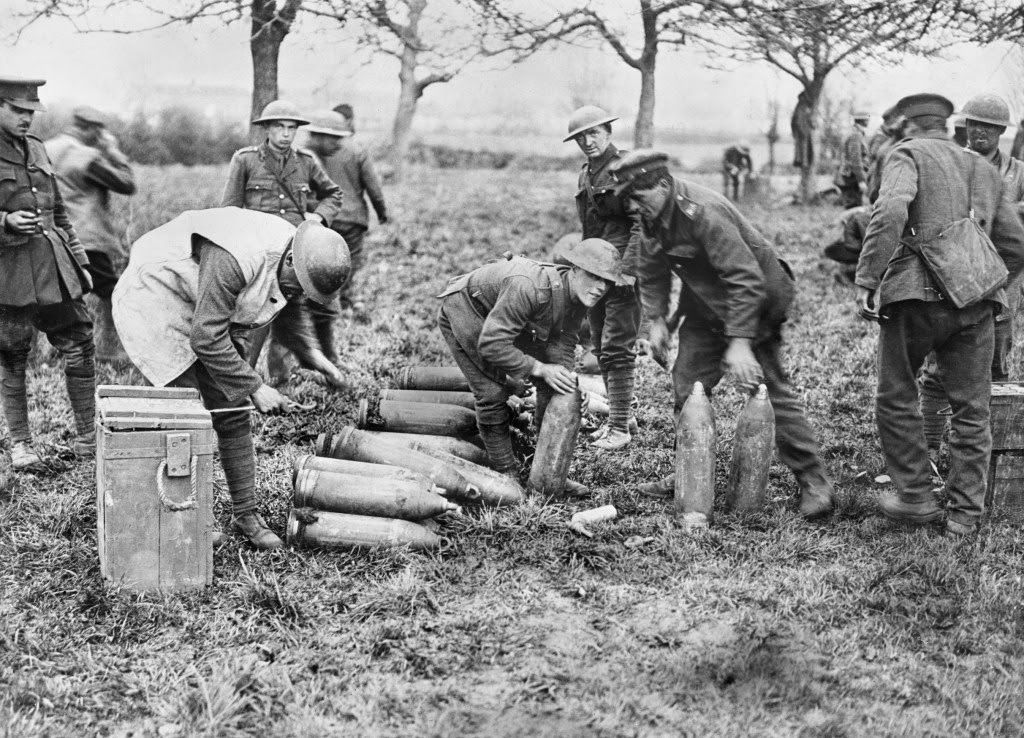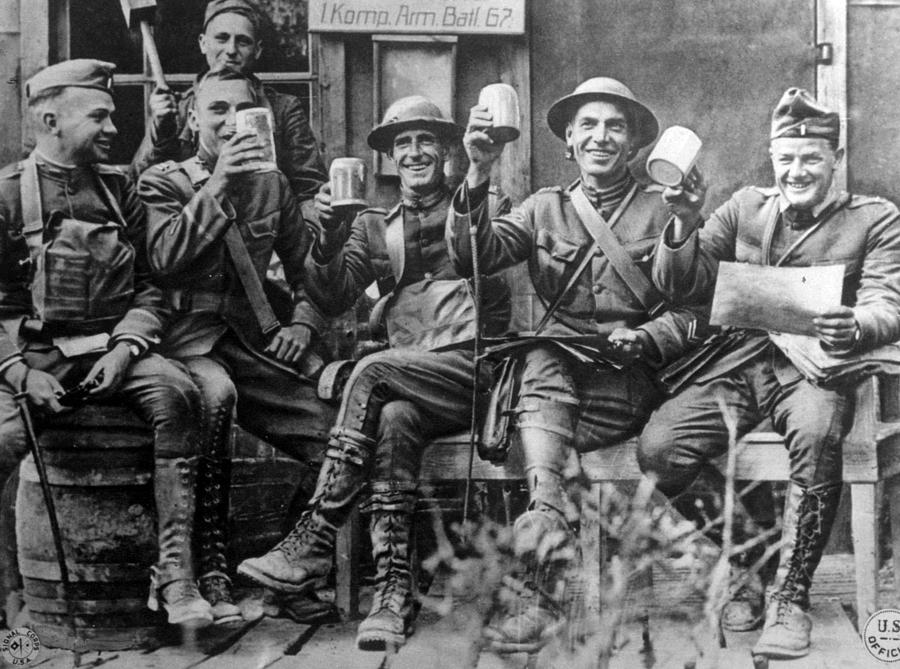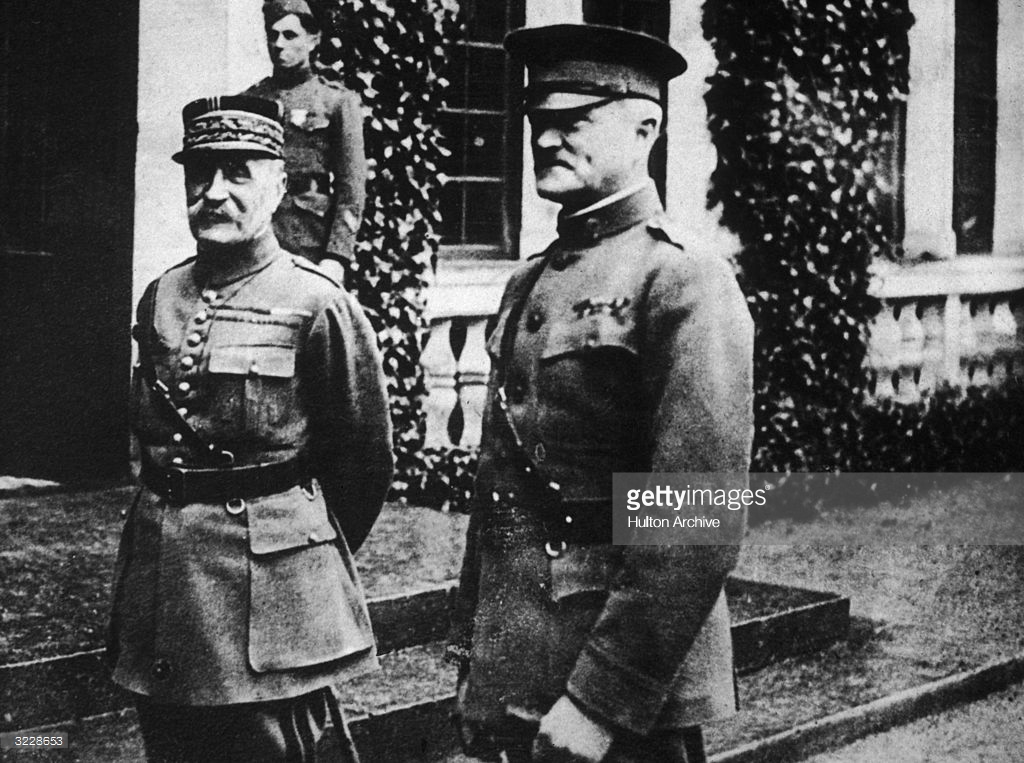British, French Highly Critical of American Preparation.
Americans Are Beginning to Die.
Special to The Great War Project.
(16 April) The need for American participation in the war is evident everywhere and every day.
So reports historian Martin Gilbert. From the commanders of both the British and French forces on the Western Front comes “an appeal for American troops to join the battle…immediately.”
Earlier, General John J. Pershing, commander of the American forces in Europe, has “promised that he would send what troops he could to the front.”

German positions in 1918 spring offensive.
“You are going to meet a savage enemy,” he tells hundreds of American officers, “flushed with victory. Meet them like Americans..
“When you hit, hit hard, and don’t stop hitting.”
“You don’t know the meaning of the word defeat.”
On this day, April 16th a century ago, “more than a thousand New Zealand troops were taken prisoner.” Four days later, the Germans launch another massive gas bombardment, “firing nine million [nine million!] rounds of mustard gas, phosgene, and other chemicals.” A total of 2,000 tons of poison gas.

British soldiers preparing artillery shells.
“The Germans too,” according to historian Gilbert, “were feeling the effects of the daily attrition.”
“We are all utterly exhausted,” writes Prince Rupprecht of Bavaria. “Everywhere I hear complaints of the accommodation of man and horse in the totally ravaged country, and the heavy loss from bombs.”
On April 20th reports historian Gilbert, “the much-needed American troops were in action in the St. Mihiel Salient, but the results are not favorable to the Allies. More than 650 American troops are caught by surprise by 2800 specially trained German shock troops.
Reports Gilbert, “The Americans, outnumbered by more than four to one, fell back with heavy losses.” Eighty-one Americans are killed, hundreds more incapacitated by gas.
General Pershing is angry at the results of this early encounter with the Germans. He cites “bad generalship” as the cause of this debacle.
The British Prime Minister David Lloyd George is also enraged. “This kind of result,” he writes, “is bound to occur on an enormous scale if a largely amateur United States Army is built up without the guidance of more experienced British and French officers.”

Some of the first Americans to reach the battlefield.
The British officer corps is highly critical of American training. The comment here: American Commanders and Staffs are almost wholly untrained, while…
… General Sir Douglas Haig wrote in his diary that “it would be criminal to count on American help that spring or even summer.’
As a result, reports Gilbert, “anti-American feeling is widespread in high British and French military circles, “where the Americans are portrayed as amateurs, interlopers and latecomers.”
General Pershing had to take some action to break this prejudice. He goes to Marshall Foch, the overall commander of Allied forces, outside Paris, and makes a “grand gesture.”
“I have come to tell you that the American people would consider it a great honor for our troops to be engaged in the present battle. I ask you for this in their name and my own.”

Pershing, right, and Marshall Foch, spring 1918.
According to historian Thomas Fleming, Foch turns the tables on Pershing. Pershing thinks the Frenchman would put the four available American divisions into the line as an army corps. Instead he put them into “quiet sectors.”
The German onslaught continues, but the Americans still are not fully in the war.

While I believe some European military leaders were genuinely concerned about the readiness of American troops, most of these statements were made by politicians and generals who simply wanted to use American troops as reinforcements in their own armies.
The urgent situation caused by the 1918 German offensives caused incompletely trained American troops to be rushed into combat. Hence much of the poor performance and heavy casualties.
Additionally, some training shortcomings can be directly attributed to the performance of advisors and trainers provided by our “allies”.